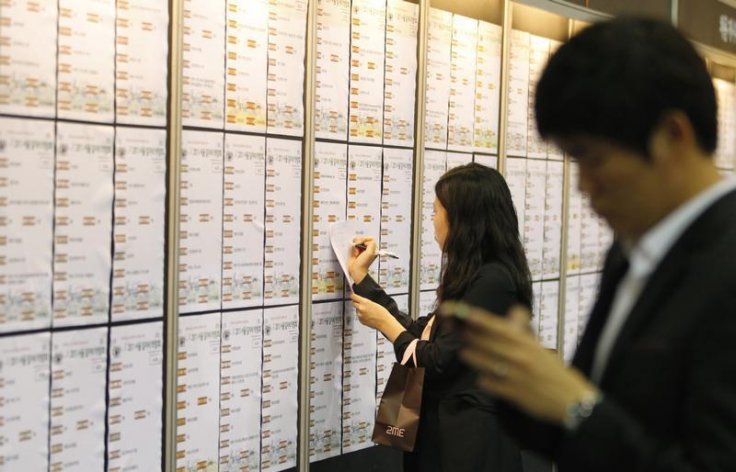
Cho Min-kyong boasts an engineering degree from one of South Korea's top universities, a school design award and a near-perfect score in her English proficiency test.
But she had all but given up hope of finding a job when all her 10 applications, including one to Hyundai Motor Co, were rejected in 2016.
Help came unexpectedly from neighbouring Japan six months later: Cho got job offers from Nissan Motor Co and two other Japanese companies after a job fair hosted by the South Korean government to match the country's skilled labour with overseas employers.
"It's not that I wasn't good enough. There are just too many job seekers like me, that's why everyone just fails," said the 27-year-old, who now works in Atsugi, an hour southwest of Tokyo, as a car seat engineer for Nissan.
"There are numerous more opportunities outside Korea."
Facing an unprecedented job crunch at home, many young South Koreans are now signing up for government-sponsored programmes designed to find overseas positions for a growing number of jobless college graduates in Asia's fourth largest economy.
State-run programmes such as K-move, rolled out to connect young Koreans to "quality jobs" in 70 countries, found overseas jobs for 5,783 graduates last year, more than triple the number in 2013, its first year.
Almost one-third went to Japan, which is undergoing a historic labour shortage with unemployment at a 26-year low, while a quarter went to the United States, where the jobless rate dropped to the lowest in nearly half a century in April.
There are no strings attached. Unlike similar programmes in places such as Singapore that come with an obligation to return and work for the government for up to six years, attendees of South Korea's programmes are neither required to return, nor work for the state in the future.
"Brain drain isn't the government's immediate worry. Rather, it's more urgent to prevent them from sliding into poverty" even if it means pushing them abroad, said Kim Chul-ju, deputy dean at the Asian Development Bank Institute.
In 2018, South Korea generated the smallest number of jobs since the global financial crisis, only 97,000.
Nearly one in five young Koreans was out of work as of 2013, higher than the average 16 percent among the member countries of the Organization for Economic Cooperation and Development.
In March, one in every four Koreans in the 15-29 age group was not employed either by choice or due to the lack of jobs, according to government data.

LABOUR MISMATCH
While India and other countries face similar challenges in creating jobs for skilled labour, the dominance of family-run conglomerates known as chaebol makes South Korea uniquely vulnerable.
The top 10 conglomerates including world-class brands such as Samsung and Hyundai, make up half of South Korea's total market capitalisation.
But only 13 percent of the country's workforce is employed by firms with more than 250 employees, the second lowest after Greece in the OECD, and far below the 47 percent in Japan.
"The big companies have mastered a business model to survive without boosting hiring," as labour costs rise and firing legacy workers remains difficult, said Kim So-young, an economics professor at Seoul National University.
Yet while increasing numbers of college graduates are moving overseas for work, South Korea is bringing in more foreigners to solve another labour problem – an acute shortage of blue collar workers.
South Korea has the most highly educated youth in the OECD, with three-quarters of high school students going to college, compared with the average of 44.5 percent.
"South Korea is paying the price for its overprotection of top-tier jobs and education fervour that produced a flood of people wanting only that small number of top jobs," said Ban Ga-woon, a labour market researcher at state-run Korea Research Institute for Vocational Education & Training.
Even amid a glut of over-educated and under-employed graduates, most refuse to "get their hands dirty", says Lim Chae-wook, who manages a factory making cable trays that employs 90 people in Ansan, southwest of Seoul.
"Locals simply don't want this job cause they think its degrading, so we're forced to hire a lot of foreign workers," Lim said, pointing to nearly two dozens workers from the Philippines, Vietnam and China working in safety masks behind welding machines.








